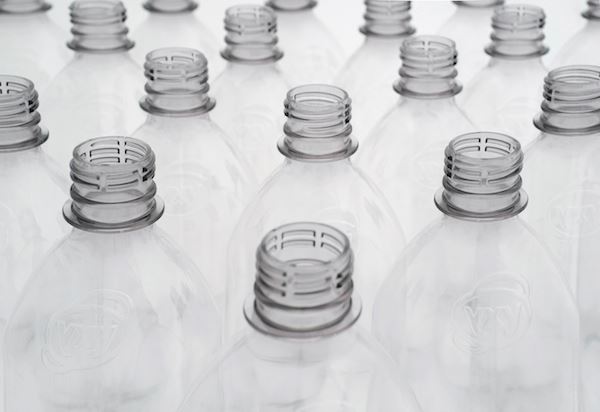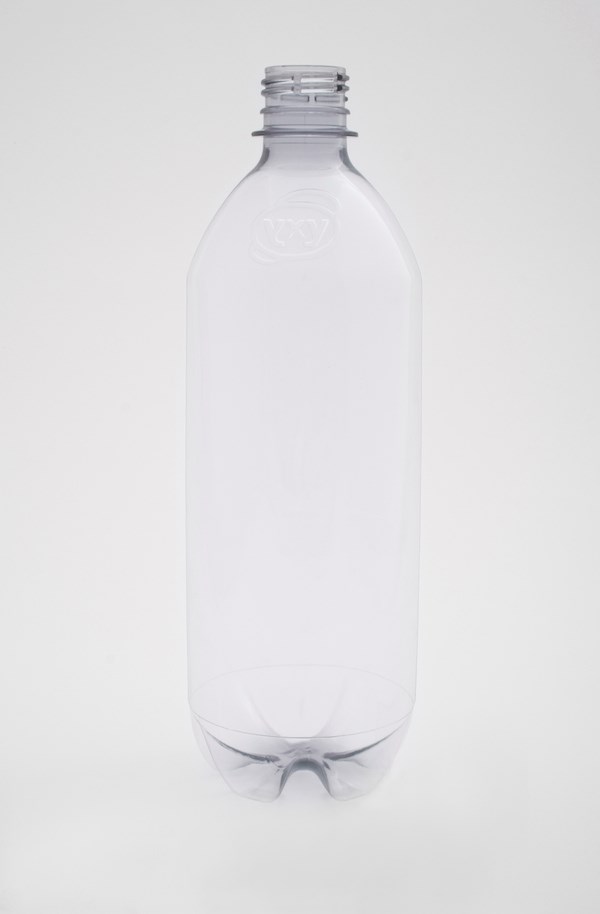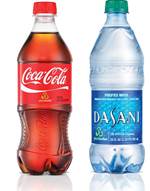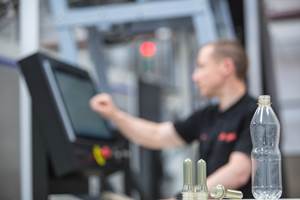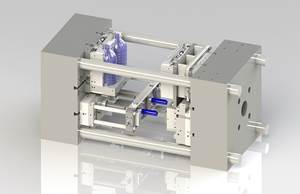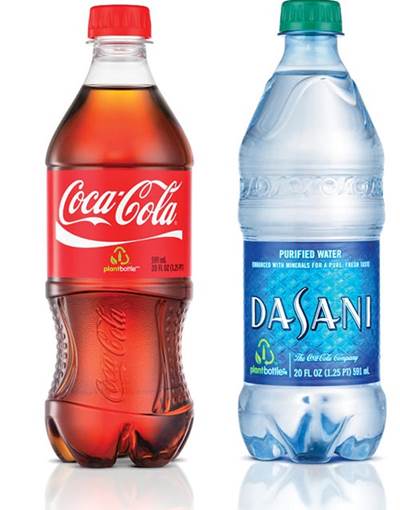100% biobased polyester charts course to commercialization
Avantium's PEF (polyethylene furanoate) holds much promise as a 100% biobased polyester, and now the company is taking steps to help the bioplastic fully realize that potential.
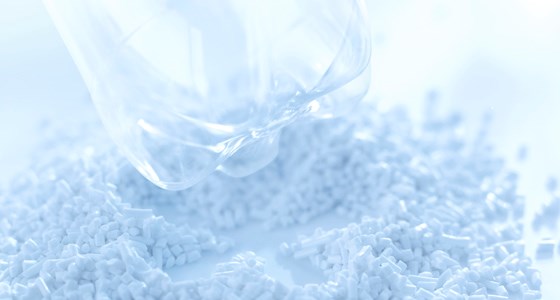
Whether by licensing its technology or retrofitting a mothballed plant, Avantium is pushing for commercial scale production of its 100% biobased PET alternative, PEF (polyethylene furanoate). Nathan Kemeling, director business development for renewable chemical company Avantium’s PEF project, YXY, told The Packaging Conference (Feb. 3-5, Orlando) that since PEF can use the same polycondensation process found in the PET chain, taking over a smaller PET plant that’s been taken offline “is very attractive for us.”
Such a “brownfield” route to a proposed 50 kt plant by 2017 is within reason, given the amount of PET capacity that’s been shuttered of late. Kemeling said no decision has been made on where the plant will go, with Europe and North America in the running. Feedstock and energy prices, however, will inform the decision, making North America “a very likely location,” according to Kemeling, due to the nascent shale gas revolution.
Getting closer
In follow-up questions after the conference, Kemeling said Avantium is getting closer to larger scale production, although it hasn’t nailed down where that production will be. “We are making significant progress on the engineering of the commercial plant,” Kemeling told Plastics Technology. “Nevertheless we will keep our options open on the plant location. It will either be in Europe or North America. A final decision will be made by the end of the year.”
Kemeling said that the initial FDCA plant will be owned and operated by Avantium, potentially in collaboration with strategic partners. FDCA [Furandicarboxylic acid] is the key building block for Avantium’s PEF resin.
“Our long-term ambition is to sell a license to build or retrofit plants for FDCA,” Kemeling said in his Packaging Conference presentation. “The intermediate step is building the 50kt commercial plant. This will allow us to demonstrate the economics, and let our partners launch the first PEF products to the market.”
For industrial scale FDCA plants, Kemeling said that Avantium will be a technology provider, selling licenses to partners interested in constructing and operating a FDCA plant. Polymerization could potentially be performed in existing PET reactors, and Kemeling said Avantium will also seek to collaborate with partners to polymerize PEF at existing PET sites.
PEF as a bottle-resin rival to PET
Avantium has already partnered with Alpla and Coca-Cola to make 100% biobased bottles a reality, and it believes that once commercial scale is achieved, PEF would compare favorably with the reigning bottle king, PET.
At this time, Avantium has a FDCA pilot plant with a nameplate capacity of 20 tons per year running 24/7 in Geleen, in the south of the Netherlands. PEF is subsequently produced in PET reactors at toll manufacturers.
In Orlando, Kemeling told the conference that PEF’s oxygen barrier is 10 times that of PET, with double the water vapor and four times the CO2 barrier. The glass transition temperature of 88°C is 12°C higher than PET, with a tensile modulus that is 1.6 times greater. Those properties mean that despite the fact that PEF has about a 5% higher density than PET, it could still lightweight bottles by thinning walls and/or eliminating barrier layers.
Asked whether a PEF bottle would allow a lighter package than PET for a carbonated soft drink, for instance, Kemeling was emphatic.
“Yes, absolutely,” Kemeling said. “The 60% higher tensile modulus and the improved barrier performance will allow for significant lightweighting, which more than compensates for a ~5% higher density.”
Related Content
All-Electric Shuttle and Stretch-Blow Machines
NPE2024: Meccanoplastica shows off a double-sided shuttle for containers up to 5 L and a reheat stretch-blow molder for up to 2.5 L PET containers with four cavities — both all-electric.
Read MoreNew Bottle Base for Nitrogen-Dosed Products in 100% rPET
Sidel’s new StarLITE-R Nitro offers an alternative to petaloid bases with equal performance in a wide range of 100% rPET bottle sizes.
Read MoreServices to Help Blow Molders Convert to rPET
Sidel launches “RePETable” range of services as “one-stop” solution to efficient adoption of rPET for bottle production.
Read MoreAt NPE, Cypet to Show Latest Achievements in Large PET Containers
Maker of one-stage ISBM machines will show off new sizes and styles of handled and stackable PET containers, including novel interlocking products.
Read MoreRead Next
Coca-Cola Joins Race for 100% Biobased PET Bottle
One of the more unusual aspects of the sustainability drive in the plastics industry (see NPE Sustainability article this month) is the way giant beverage companies are taking an active role in spurring development of biobased plastics for bottles.
Read More

